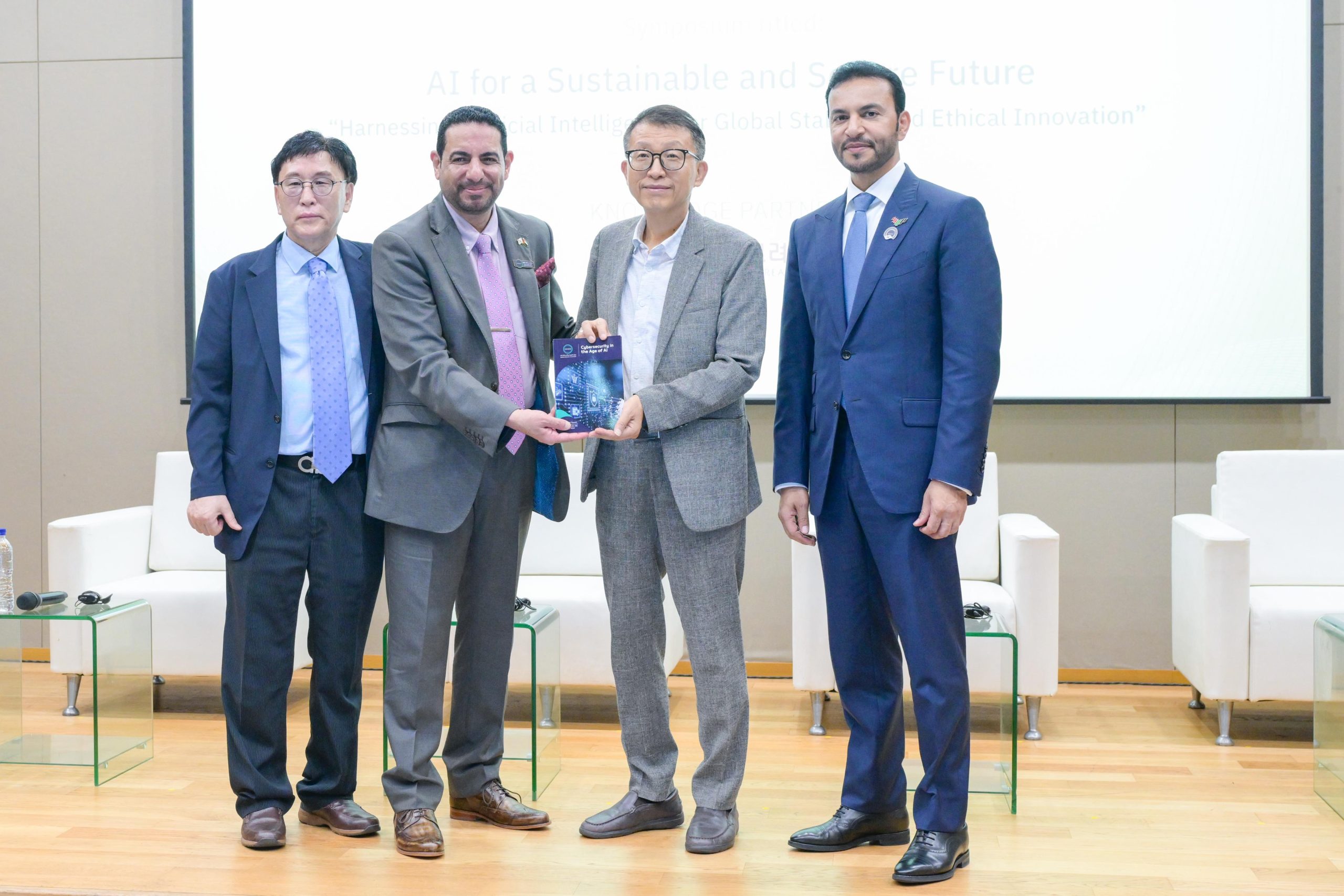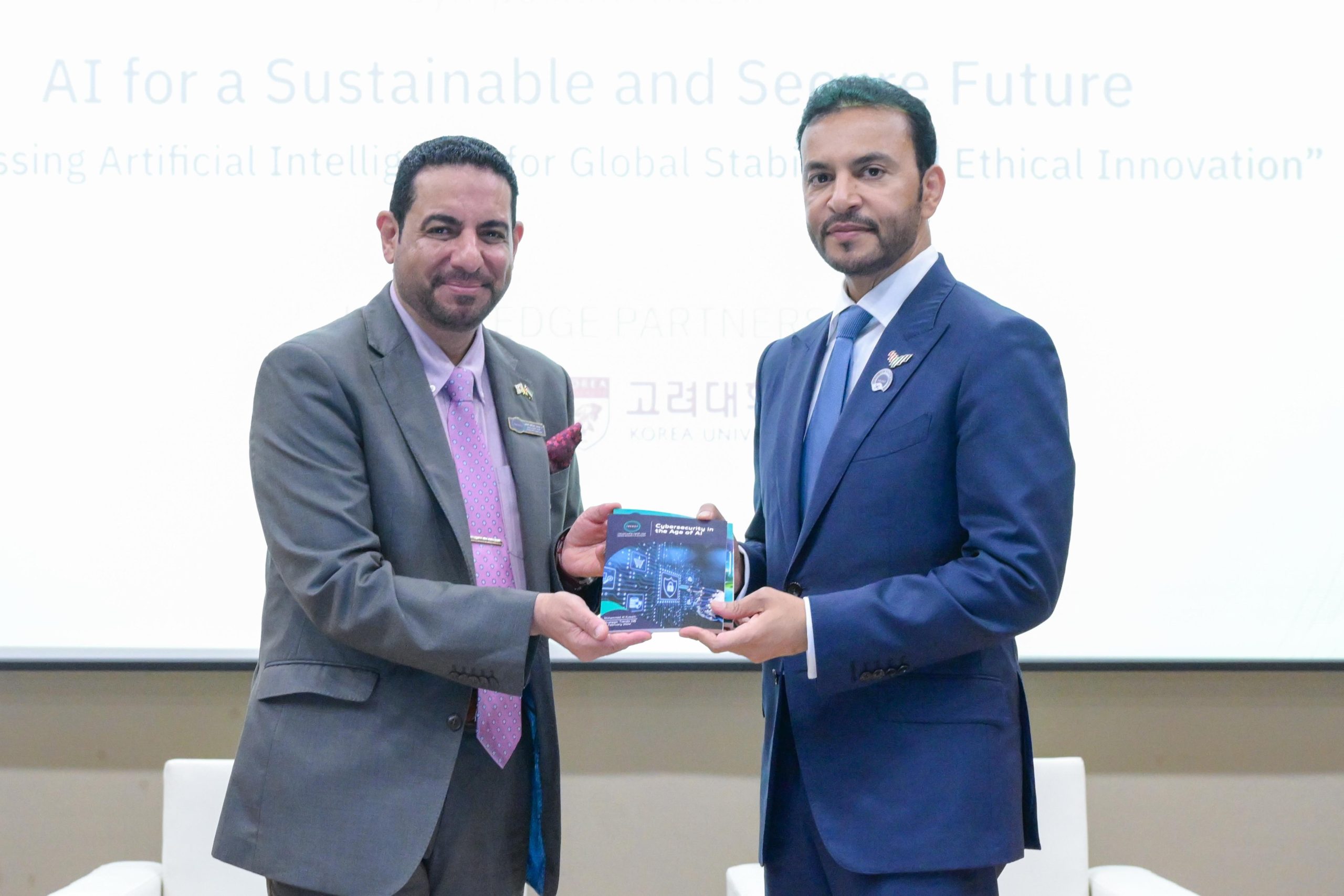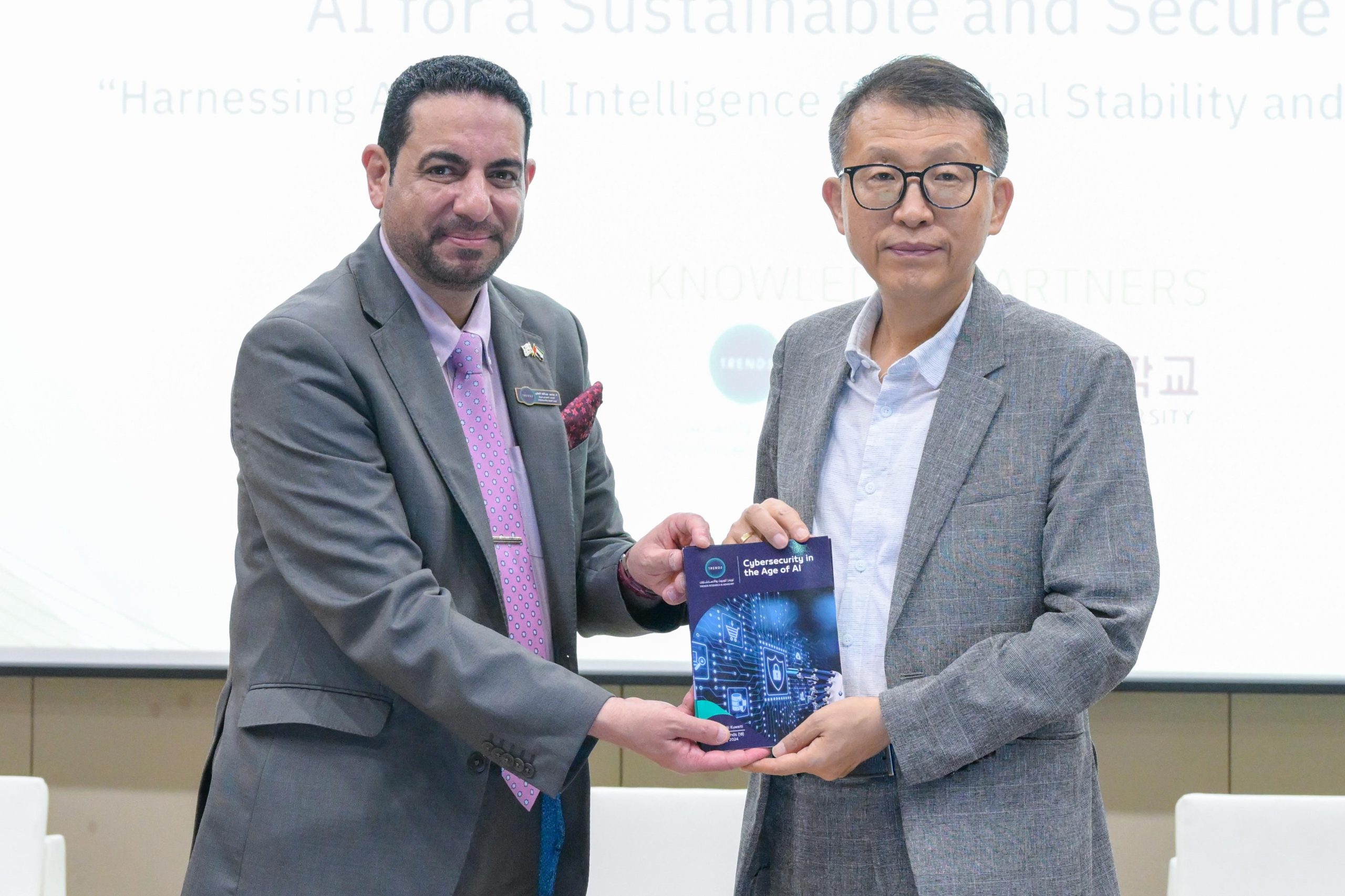–Dr. Mohammed Al-Ali: The Seoul office is part of a continuous network of TRENDS’ offices worldwide to enhance knowledge exchange between researchers and experts
In the presence of His Excellency Abdullah Saif Al Nuaimi, the Ambassador of the United Arab Emirates to the Republic of Korea, and at the outset of an Asian tour, TRENDS Research & Advisory inaugurated its eighth global office in Seoul, the capital of South Korea. The launch aligns with its 2024 plan, which includes 15 offices, reflecting its global research strategy and supporting knowledge exchange between think tanks regionally and internationally. The launch event took place at the Seoul Office located at the Korea University campus in partnership with the University. It was attended by officials, researchers, academics, and university representatives.
TRENDS Seoul Office aims to emphasize the priority given by TRENDS to advanced technology and AI as key drivers of the global future. It seeks to open a space for constructive scientific dialogue with the Korean academic community, particularly given Korea’s specialized expertise in the fields of technology and AI. Additionally, it aims to highlight the opportunities and challenges that AI creates for cybersecurity in the future, and to stress the importance of collective efforts to shape a future where AI serves as a force for development and prosperity without cyber threats, emphasizing the need to protect internet infrastructure from potential risks.

In his speech inaugurating the office, Dr. Mohammed Abdullah Al-Ali, CEO of TRENDS Research & Advisory, stated that the Seoul Office is part of a continuous global network of TRENDS’ offices to enhance scientific and intellectual exchange between researchers and experts. He added that through its physical presence in Seoul, in partnership with Korea University, the Center aspires to link the research community in this region of Asia—which holds significant global weight—and the head office in Abu Dhabi. This will contribute to broad scientific and intellectual openness, fostering knowledge and scientific collaboration.
Dr. Al-Ali explained that the Seoul Office on the Korea University campus will include a select group of specialized researchers and experts, particularly from the University, which houses more than 150 research institutes. This will provide a qualitative addition to the TRENDS research community and produce significant scientific studies, especially in strategic studies, supporting TRENDS’ strategy as a global knowledge bridge.
Nasser Mohammed Al-Ali, Head of Administrative Affairs at TRENDS, noted that the launch of TRENDS Seoul is part of the 2024 plan for 15 offices and reflects TRENDS’ firm commitment to enhancing scientific research, knowledge, and innovation. He highlighted that TRENDS has opened offices in Dubai, Cairo, Rabat, Cape Town, Montreal, Beijing, Istanbul, and Seoul, with plans to open soon in Tokyo, Jakarta, Berlin, Moscow, Amman, São Paulo, and Al Ain. These offices aim to support the Center’s mission as a knowledge bridge connecting the people and nations of the world.

The TRENDS Seoul Office launched the book “Cybersecurity in the Age of AI” as its first activity. The book highlights that the rapid development of artificial intelligence (AI) makes managing change in human societies increasingly complex. It also points out that laws, regulations, and policies struggle to keep pace with fast technological advancements, creating challenges for institutions as they face this new reality.
The book was conducted by His Excellency Dr. Mohammed Al-Kuwaiti, Chairman of the Cyber Security Council emphasizes that the growing reliance on the Internet in the social, political, economic, and even military aspects of life increases potential security risks, particularly with critical infrastructure dependent on the Internet. This includes surveillance and security systems, power plants, and autonomous transportation.

It warns that the internet infrastructure managing these innovative interactions is not vulnerable to security threats. The silicon-based and binary systems used in computers and software, which have proven successful over the past five decades, may not be able to meet future challenges. This raises the need to rethink how this system operates to ensure a stable and secure life.
The book stresses that a security system based on the assumption that there are no vulnerabilities will not be sufficient to protect human societies benefiting from the achievements of the Fourth Industrial Revolution, such as AI, the Internet of Things (IoT), robotics, and self-driving cars.

It adds that if these systems were to be compromised, the losses would be catastrophic, potentially setting us back to a pre-modern era, where the comfortable life provided by smart technology could quickly turn into piles of electronic devices and masses of people in moments.



